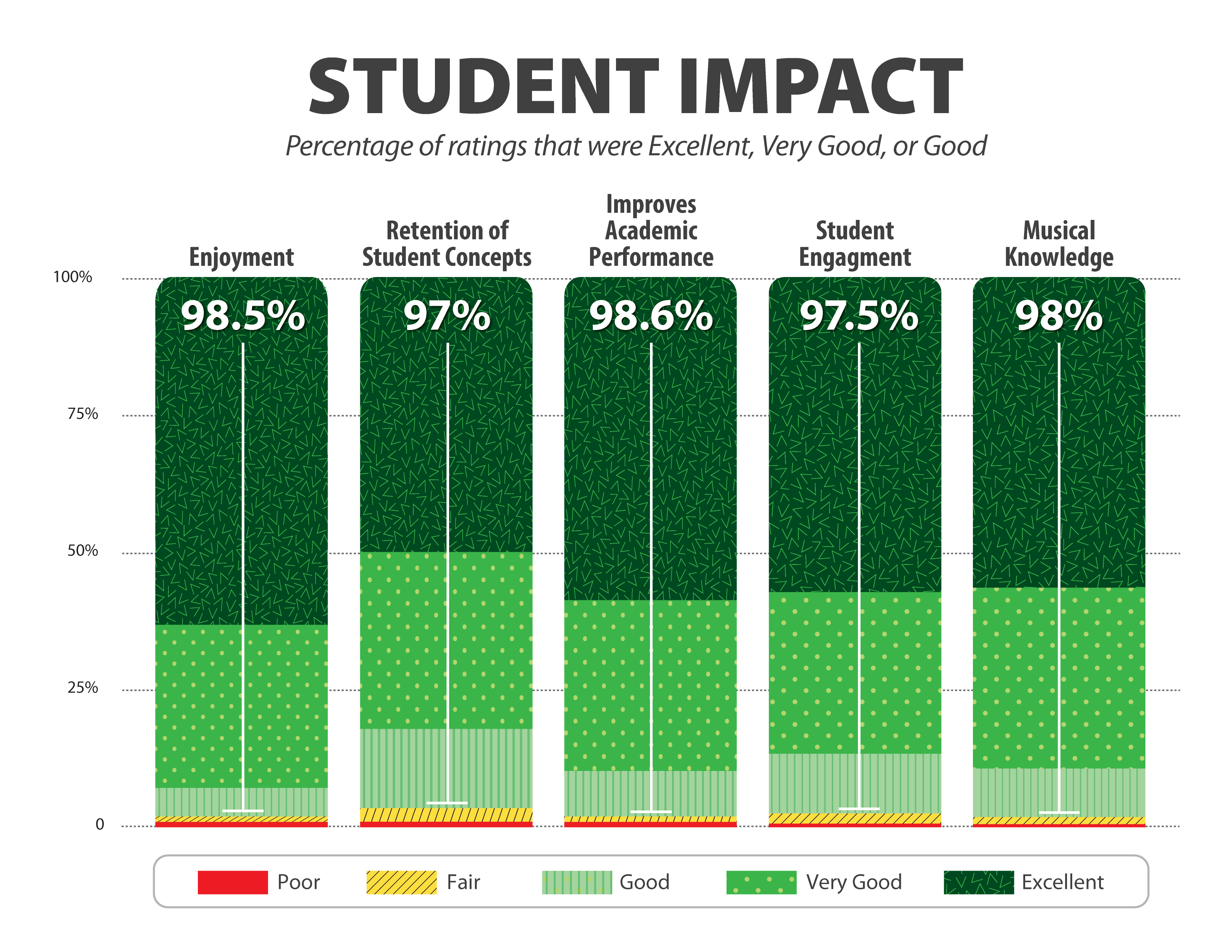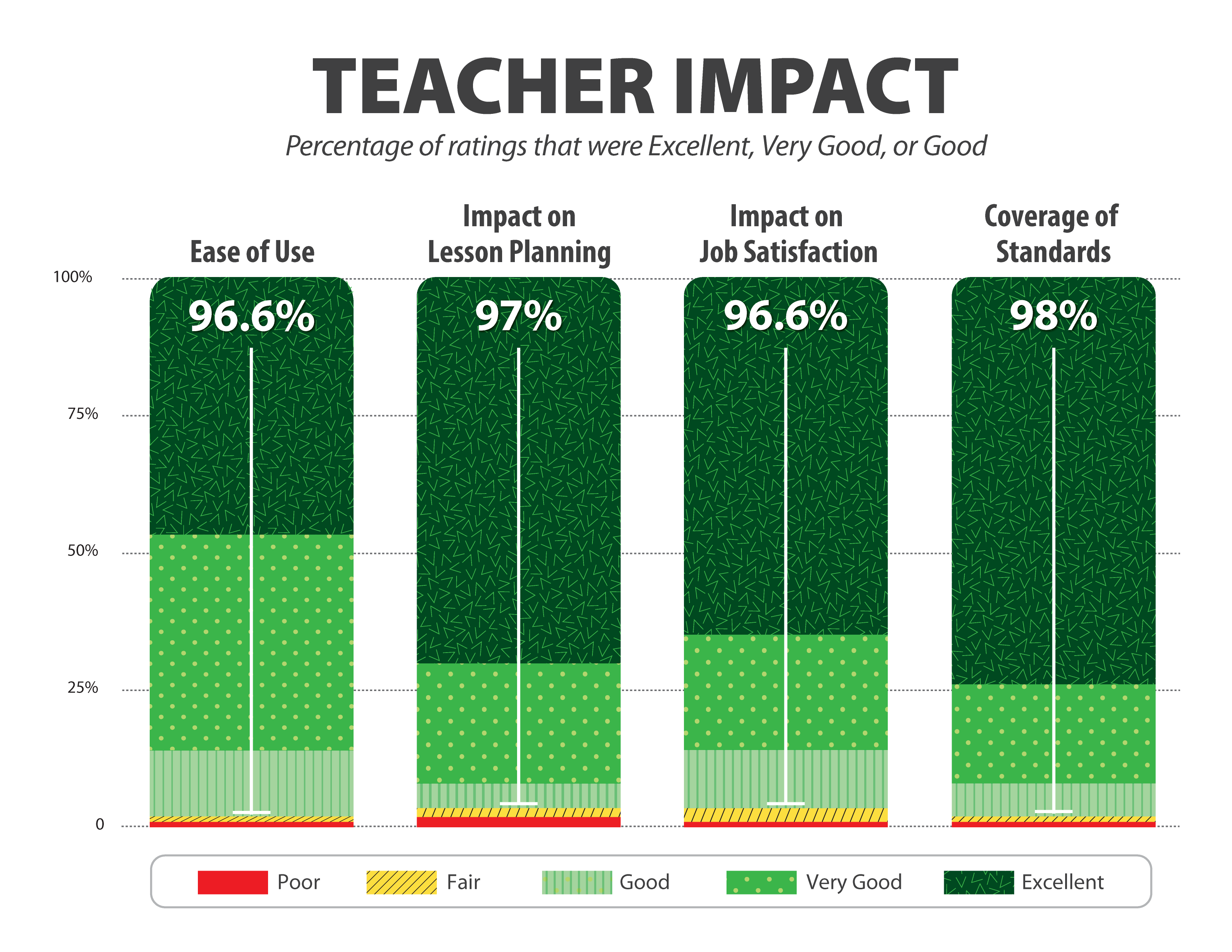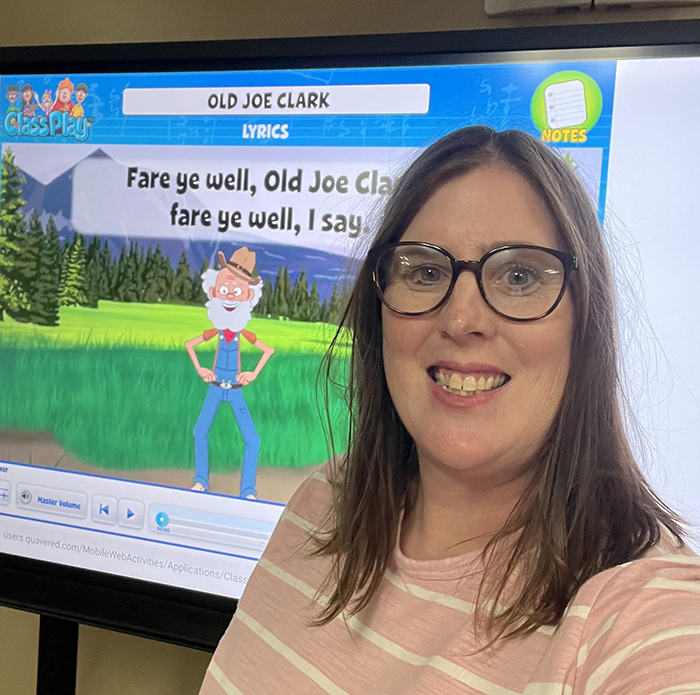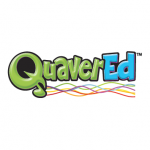“My Students Feel Like They’re Being Heard!”
By Kristin Clark Taylor
Voices and Choices
When Laura Pope’s students speak, she listens.
She listens to her students because she believes their voices matter and their choices help propel – and personalize – the learning process.
“I’ll occasionally receive a message from a student in my Quaver chat, asking if I could play a favorite song for them during the next class,” she says. “This tells me that they’re really thinking about the songs before they even walk into the classroom!”
Because QuaverMusic offers such a wonderfully wide selection, Pope says she is able to quickly and easily respond to these special requests: “I just click a few keys and – boom! – the song or game is right there!”
“And best of all,” she adds with intention, “my students feel like they’re being heard. It’s important for them to be able to express their preferences. This is how learning occurs.”
Pope should know.
As both an elementary music teacher and a Fine Arts Facilitator in Piedmont, Oklahoma, she is able to view the dynamic process of teaching (and learning) through a uniquely expansive lens.
“When I am able to give my students choices, they feel like I’m really looking out for them, which builds trust and makes them want to become more engaged,” Pope posits. “Quaver has an impact on students that is real.”
Pope’s qualitative observations about Quaver’s tremendous impact on students and educators is strongly supported by empirical, fact-based evidence. Take a peek:

STUDENT IMPACT DATA: DEMONSTRATED SUCCESS
QuaverEd’s diversified, music-based, learning approach engages students, increases retention, and encourages life-long learning.

TEACHER IMPACT DATA: QUAVER SUPPORTS ALL EDUCATORS
Data shows a significant increase in overall job satisfaction when educators are equipped with QuaverEd.
Source: QuaverEd
QuaverEd Boosts Retention, Reduces Behavioral Issues
The survey results (above) show that educators give Quaver extremely high marks for ease of use, student retention, and reduction in behavioral problems.
To further underscore these fact-based results, Pope posits her own theory:
“Because my students are so directly connected and deeply engaged, they experience learning as fun,” she says, “That’s why I have so few behavioral issues in my classroom. And that’s why retention is improving.”
Pope is also careful to point out that even though the allotted class time she has with her students is relatively short – “I only see them every six days, for fifty minutes” – Quaver’s overall impact is, well, long.
This is the kind of impact that endures. That persists. That refuses to dissipate or dissolve with the passage of time.
Yet again, Pope provides the proof:
“I get most of the messages from my students at the end of the day, right around dismissal time,” she explains.
Why so many messages at the end of the day? I ask.
“Because that’s when the kids are waiting for the bus, and this is when they have time to whip out their Chrome books, pull up a favorite lesson or game, or send me a message about the songs they’d like to hear next!”
Which ones are at the top of their Request List?
“Old Jo Clark, for sure!” she answers quickly, with a smile in her voice.
“When we first got Quaver, I’d play this song across all my grade levels, and everybody joined in the fun! Everybody feels the love!”

At Northwood Elementary in Piedmont, Oklahoma, music teacher Laura Pope says ‘Old Joe Clark’ is an all-time favorite!
Memories of Music Class: Oh, How Things Have Changed!
When she reflects on the music classes from her own youth, Laura laughs lightly … perhaps even a bit wistfully.
“Isn’t it funny that when I think back to the music classes I took as a kid, I can’t really remember much of anything?” she asks, incredulous.
“Music just wasn’t in front of us back then. Today, thanks to resources like Quaver, students are deeply and directly connected to the music, another important learning tool.”
Pope says that when many of her former students come back to visit, they share their own memories of music class – memories that are much different than hers, thanks to cool tools like Quaver.
“They’ll say, ‘Hey, you still teach ‘Old Joe Clark’! That song was awesome! I still remember the lyrics!”
She sighs a happy sigh as she thinks back to what music classes used to be like when she was a kid.
“Oh, how things have changed!”
Pope puts it simply: “My kids remember Quaver. They kind of take it with them.”
This kind of enduring human connection helps make QuaverEd the leader in digital education.
Take a quick trip down Memory Lane yourself.
Try to recall what the music classes were like when you were in elementary school!
If you’re anything like Laura, your music class memories probably don’t include animated characters, online platforms, and digital technology, either!
Isn’t this proof that cutting-edge companies like Quaver have really changed the history and the horizon of elementary music education?
And isn’t it time to become a change-maker yourself by getting Quaver into your classroom?
For more information, go to QuaverEd.com/Music
Kristin Clark Taylor is an author and a journalist.
***
